Kittel: I'm not one of the top favourites for the Tour de France sprints
German expects no one team will dominate sprint finales
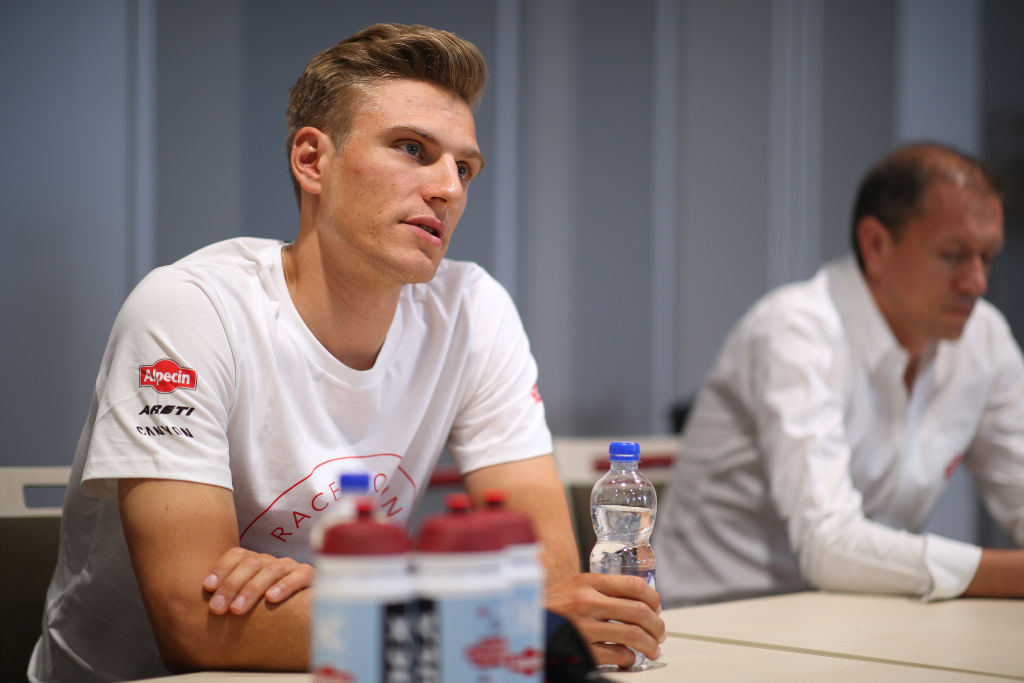
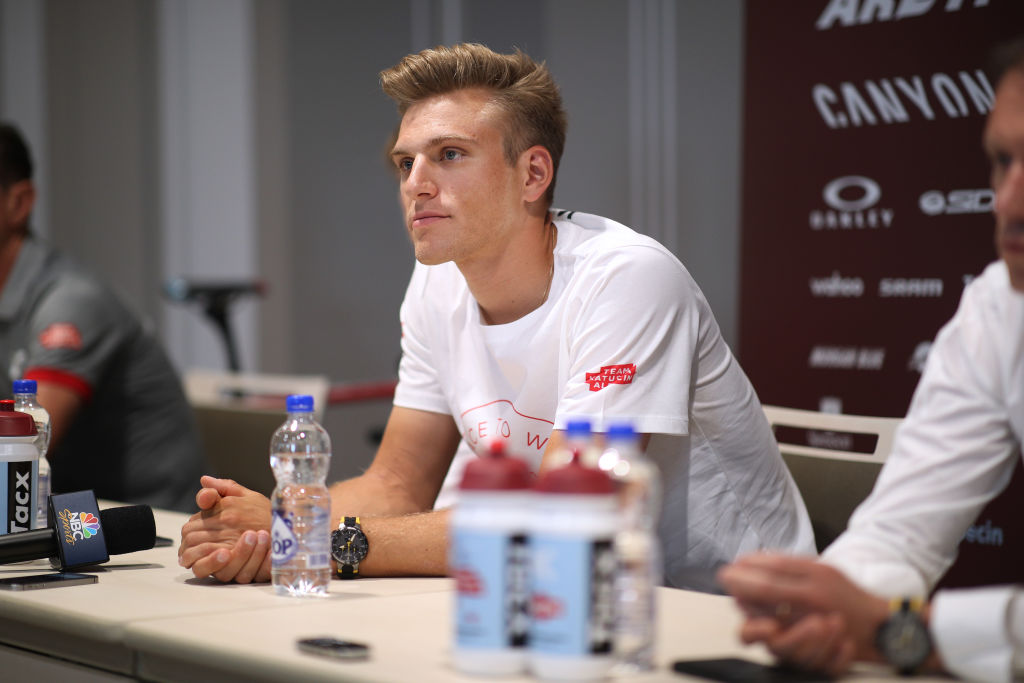
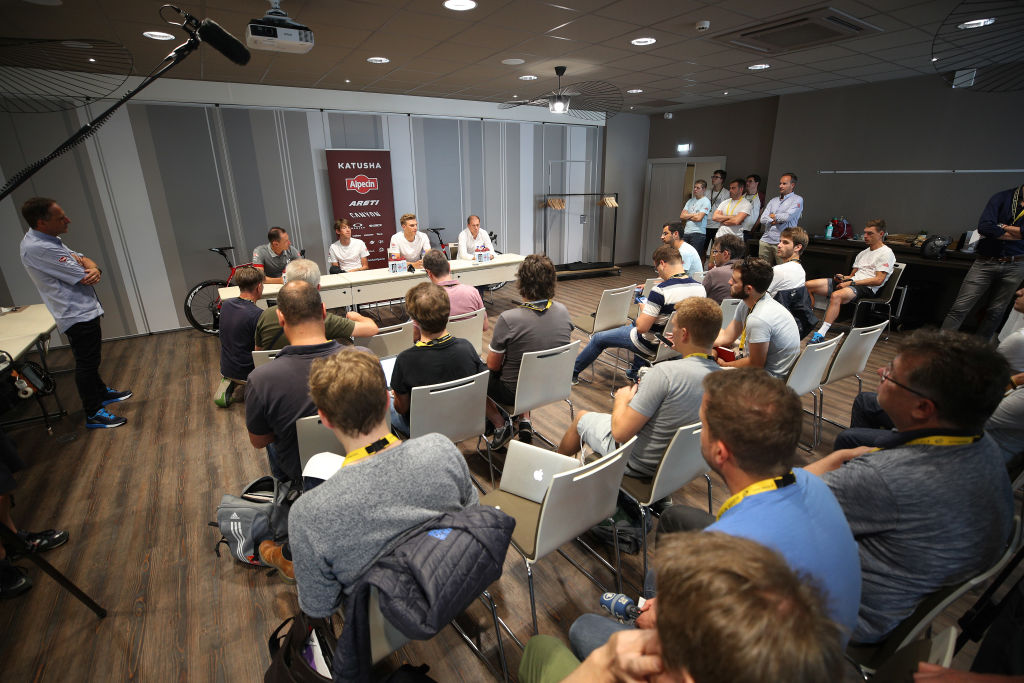
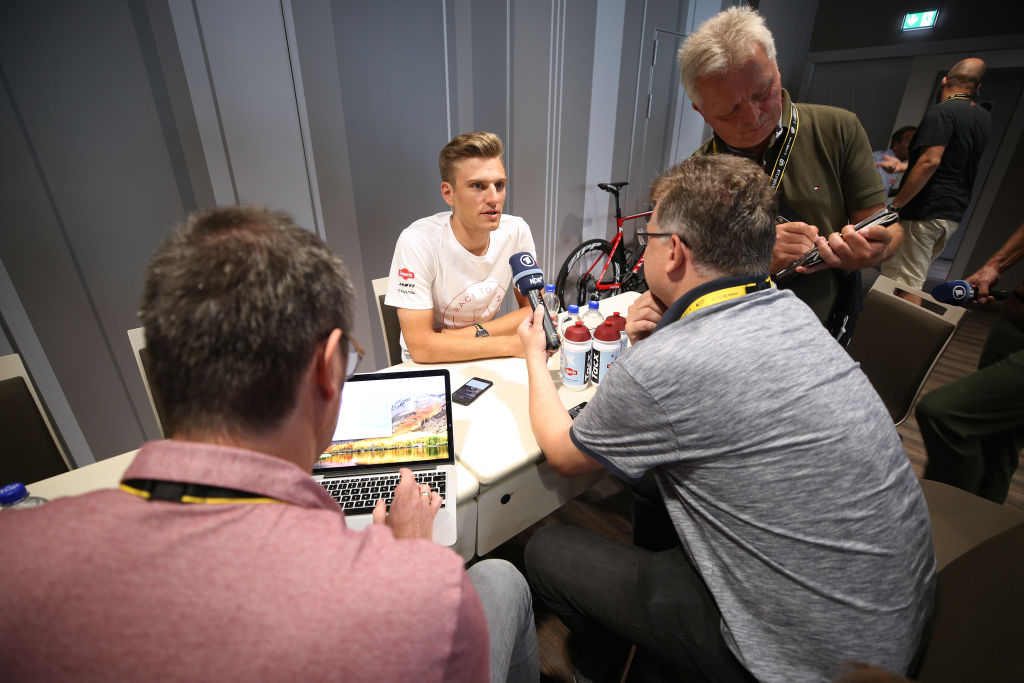
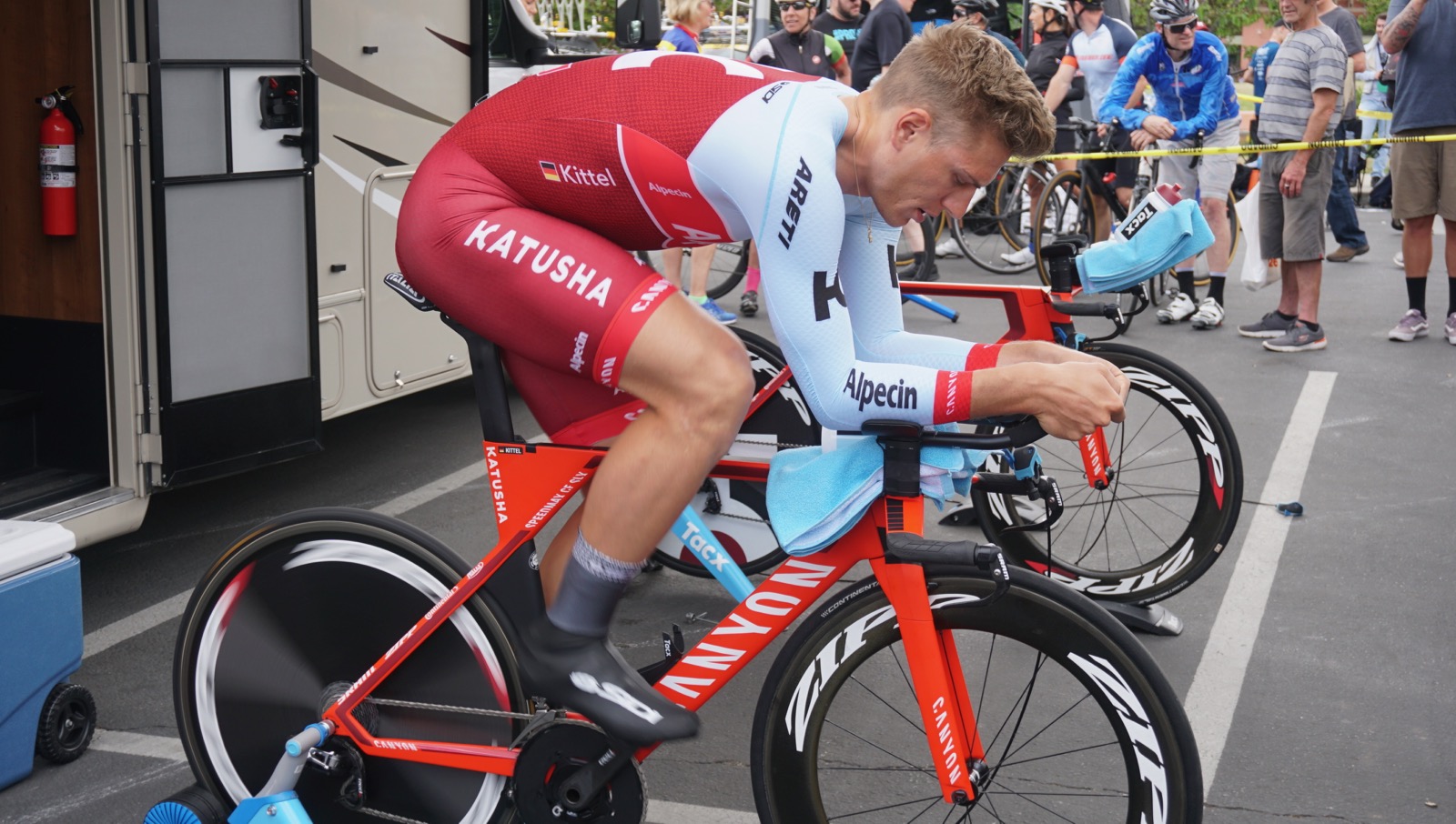
After winning every bunch sprint he contested at last year's Tour de France, Marcel Kittel should go into the 2018 edition – one with even more opportunities for the fast men – as the top dog, the man to beat. Yet everything seems far more uncertain since he swapped the blue of Quick-Step for the red of Katusha-Alpecin.
Dowsett convinced that Katusha lead-out can help Kittel deliver in the sprints
Kittel and Zakarin lead Katusha-Alpecin at Tour de France
The return of Peter Sagan: A closer look at Bora-Hansgrohe's Tour de France team
Tour de France 2018: Eight sprinters to watch - Video
Mark Cavendish: Merckx Tour de France stage record is one of my few remaining targets
The German has only won two races all year, both at Tirreno-Adriatico in March. By this point last year he had won eight times, and nine times the year before. In fact, this is only the second time – after his notoriously miserable 2015 campaign – that he has entered July with fewer than seven victories since he turned pro in 2010.
"I'd be lying if say it wasn't on my mind," Kittel said of his low 2018 strike rate, speaking at Katusha-Alpecin's pre-Tour press conference in La Roche-sur-Yon on Thursday.
"It's a fact of the season. We started with a lot of goals, and we achieved some of them, but sometimes we were unlucky, or sometimes we were not in the front, so it's been a little bit of up and down. I guess that's normal in a career. It would be wrong to assume every season always goes up with a lot of success."
Kittel was utterly dominant in France 12 months ago, winning five stages almost at a canter. This year, however, his own relative lack of results combines with a much deeper field of sprinters, causing him to exercise caution when discussing his prospects even if he has few concerns about his form.
"It's 2017, it's in the past," he said. "You said it already – this season hasn't been so successful. It's also fair to call myself not a top favourite for the sprints here because there are a lot of other guys who won a lot of other races, and a lot of other strong teams.
"Every time you go to the Tour you don't know how it will go. I'm experienced now, but there's always that unknown feeling about where you stand compared to the others, and for sure that combines with the excitement. I'm feeling confident. I have a good feeling now after training camps. I've been trying to deal with it and I think I found a good way coming here to the Tour de France, which is the big highlight of 2018 for myself."
The latest race content, interviews, features, reviews and expert buying guides, direct to your inbox!
Things might not have clicked for Kittel at Katusha in quite the way he envisaged at the start of the year, but he expressed full confidence in his teammates and repeatedly referred to the collective, even in a team that is also juggling the general classification ambitions of Ilnur Zakarin.
"We've had six months now to practice. That's already a good amount of races we did together. I trust the boys, Rick and Tony will be there in the finale and we will work together. For me at the moment that's the most important thing, having trust in each other," he said.
"We must not put ourselves in a situation where we force it. There are also other teams trying to achieve their goals. I think that's also good for us. We have to concentrate on ourselves. For me, the most important goal now is to come together as a group, to share that team spirit and share that one goal every stage we work for. That's a source of energy for us as well."
No big lead-out trains
With a cast of sprinters that includes Mark Cavendish, Andre Greipel, Fernando Gaviria, Dylan Groenewegen, Arnaud Démare, and Peter Sagan, there will be plenty of competition and an intense battle for road space.
Kittel noted that, as a result, the closing kilometres of the flat stages will be chaotic and nigh-on impossible for one team to dominate.
"I'm really not expecting big lead-out trains this year. We will have to surf and jump a bit," he said.
"If you look at the last two seasons, there were no real lead-out trains. If you look at the start list, you can only find a couple of teams – FDJ and Dimension Data – purely built for sprinters, with no GC focus. So it will be a surprise again this year, who will be able to keep the team in front. "
It has often been said that Kittel performs best with a traditional lead-out, the path cleared for him to unleash his power straight down the middle. However, the German refuted the idea he lacks the ability of a Cavendish or Gaviria to pick his way through a messy final few hundred metres.
"I think I did that last year already," he said. "Sometimes I got criticized as someone who can only sit in the wheel of a train, but last year I proved the opposite.
"I think every sprinter can do both. I clearly prefer to work as a team – that's what I like to do – but it's important for me to be able to do both, and that's what I'd like to try to do this year."
Patrick is a freelance sports writer and editor. He’s an NCTJ-accredited journalist with a bachelor’s degree in modern languages (French and Spanish). Patrick worked full-time at Cyclingnews for eight years between 2015 and 2023, latterly as Deputy Editor.
